Microsoft: 'People care more about AI's benefits than their job security'
Microsoft’s 2023 Work Trend Index also showed workers have less focus time than ever, hindering innovation


The majority of workers are more interested in the applications of AI to free up their time at work than they are afraid of it affecting their job security, according to a new study.
Some 70% of workers indicated that they would use AI to free up as much of their workloads as possible, against 49% who held concerns over the potential of AI taking their role.
Microsoft’s 2023 Work Trend Index indicated that 76% of employees think that AI would make a good tool for completing administrative work, while a similar amount (73%) would also use it for creative tasks.
Data indicated a correlation between the grasp that workers have on AI and the degree to which they believe it could improve their job.
For example, 87% of workers in creative roles who are extremely familiar with AI said they’d be comfortable using AI for creative aspects of their job.
Generative AI has become an increasingly important technology in the past year.
ChatGPT has already found its way into businesses and a number of companies have commenced work on large language models (LLMs) such as OpenAI’s GPT-4 and Google’s PaLM.
Sign up today and you will receive a free copy of our Future Focus 2025 report - the leading guidance on AI, cybersecurity and other IT challenges as per 700+ senior executives
The report, commissioned by Microsoft and undertaken by Edelman x Data x Intelligence, gathered responses from 31,000 people across 31 markets between 1 February and 14 March.
Microsoft’s 2023 Work Trend Index: Digital debt bites
The report also found that workers are increasingly under strain due to lost focus time, the need to keep in constant communication, and gross inefficiency in meetings.
Meetings in particular were highlighted as a hindrance to productivity when handled poorly or scheduled too often.
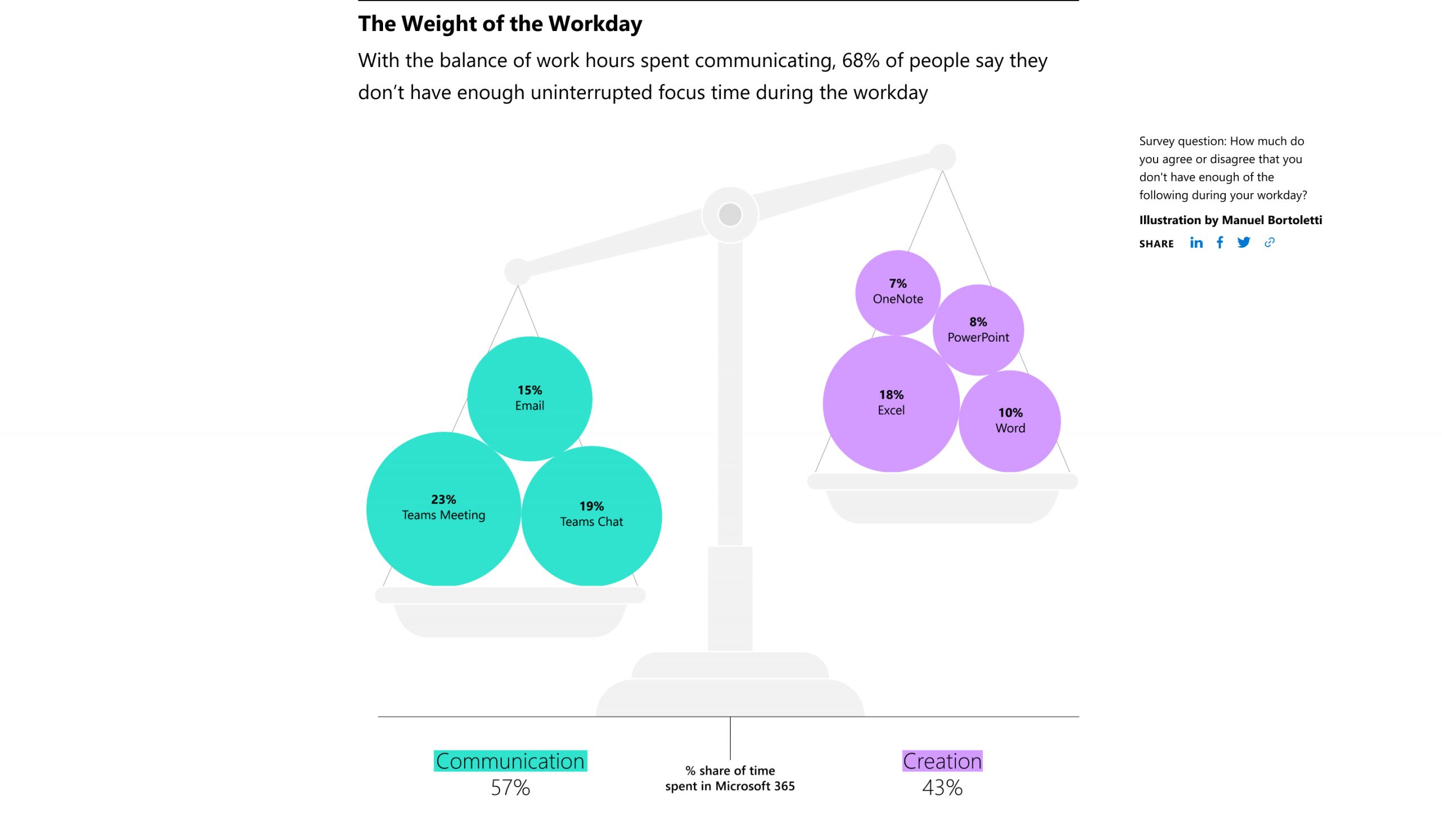
While Microsoft 365 data showed that workers spend three times as many Teams calls and meetings per week, 58% of respondents stated that it’s hard to collaborate on ideas in a virtual call and 57% found it hard to catch up on missed discussions in a digital environment.
Data also indicated that the top 25% of email users spend as many as 8.8 hours per week looking over or crafting messages, and that the same proportion of workers spend almost a full working day (7.5 hours) in meetings per week.
64% of respondents indicated that finding the time and energy to do their job is difficult, and the data suggested that these unmotivated employees are 3.5 times more likely to find strategic thinking or innovative ideas difficult to manage.
Reducing the proportion of workers’ time spent on communication and administrative tasks is a core aspect of Microsoft 365 Copilot, the firm’s AI addition to its productivity suite, which is capable of summarizing meetings, prioritizing emails, and preparing document drafts.
Microsoft’s 2023 Work Trend Index: Will workers be replaced by AI?
Microsoft’s report indicated AI will play an ever-larger role across markets, with 82% of leaders having indicated that workers will require new skills to compete.
Job listings have begun to reflect this already, with LinkedIn posts that referenced ‘GPT’ or ‘generative AI’ 33 times more numerous than a year ago.
“We’re in the next phase of change with the introduction of generative AI, and it’s already starting to reshape the labor market,” said Karin Kimbrough, chief economist at LinkedIn.
“While it’s still early days, this shift will expand opportunities, create new roles, and augment productivity.”
Upskilling employees may prove central to effective AI adoption, while employers also indicated that emotional intelligence and the capability of employees to make analytical judgments are among the top skills necessary for AI-centred work.
Of the business leaders surveyed, 16% indicated that reducing headcounts would be the most valuable benefit of AI within their workplace compared with 31% who identified productivity improvements as the chief benefit of the technology.
The most-picked responses also included the automation of mundane tasks, improving workforce well-being, and reducing time spent on low-value work.
Overall, the study communicated optimism for AI, with 33% of respondents who were asked to picture how the world of work might change by 2030 having indicated that good work could be done twice as fast.
Around a quarter also stated that by 2030, they would be provisioning time and energy more valuably, and would not have to interact with unnecessary data.
While a minority of employers have indicated staff cuts as an explicit benefit of AI, market conditions and research does indicate that jobs across markets could be significantly disrupted by higher AI uptake.
The UK Trade Union Congress (TUC) warned in April that without government intervention, workers will be “exploited’ by AI, and may exacerbate workplace discrimination.
Research from Goldman Sachs has also estimated 300 million jobs worldwide may be lost to AI-powered automation, and that in the US alone around two-thirds of jobs are exposed to AI automation to some degree.
“Although the impact of AI on the labor market is likely to be significant, most jobs and industries are only partially exposed to automation and are thus more likely to be complemented rather than substituted by AI,” the authors noted.
In April Dropbox cut 16% of staff, citing the changing workforce demands that have arisen out of the emphasis on AI products and generative AI in particular.
IBM has also announced a hiring freeze for roles that AI can replace, with CEO Arvind Krishna having told Bloomberg that the company anticipates almost 8,000 back-end roles could be replaced by AI in the next five years.

Rory Bathgate is Features and Multimedia Editor at ITPro, overseeing all in-depth content and case studies. He can also be found co-hosting the ITPro Podcast with Jane McCallion, swapping a keyboard for a microphone to discuss the latest learnings with thought leaders from across the tech sector.
In his free time, Rory enjoys photography, video editing, and good science fiction. After graduating from the University of Kent with a BA in English and American Literature, Rory undertook an MA in Eighteenth-Century Studies at King’s College London. He joined ITPro in 2022 as a graduate, following four years in student journalism. You can contact Rory at rory.bathgate@futurenet.com or on LinkedIn.
-
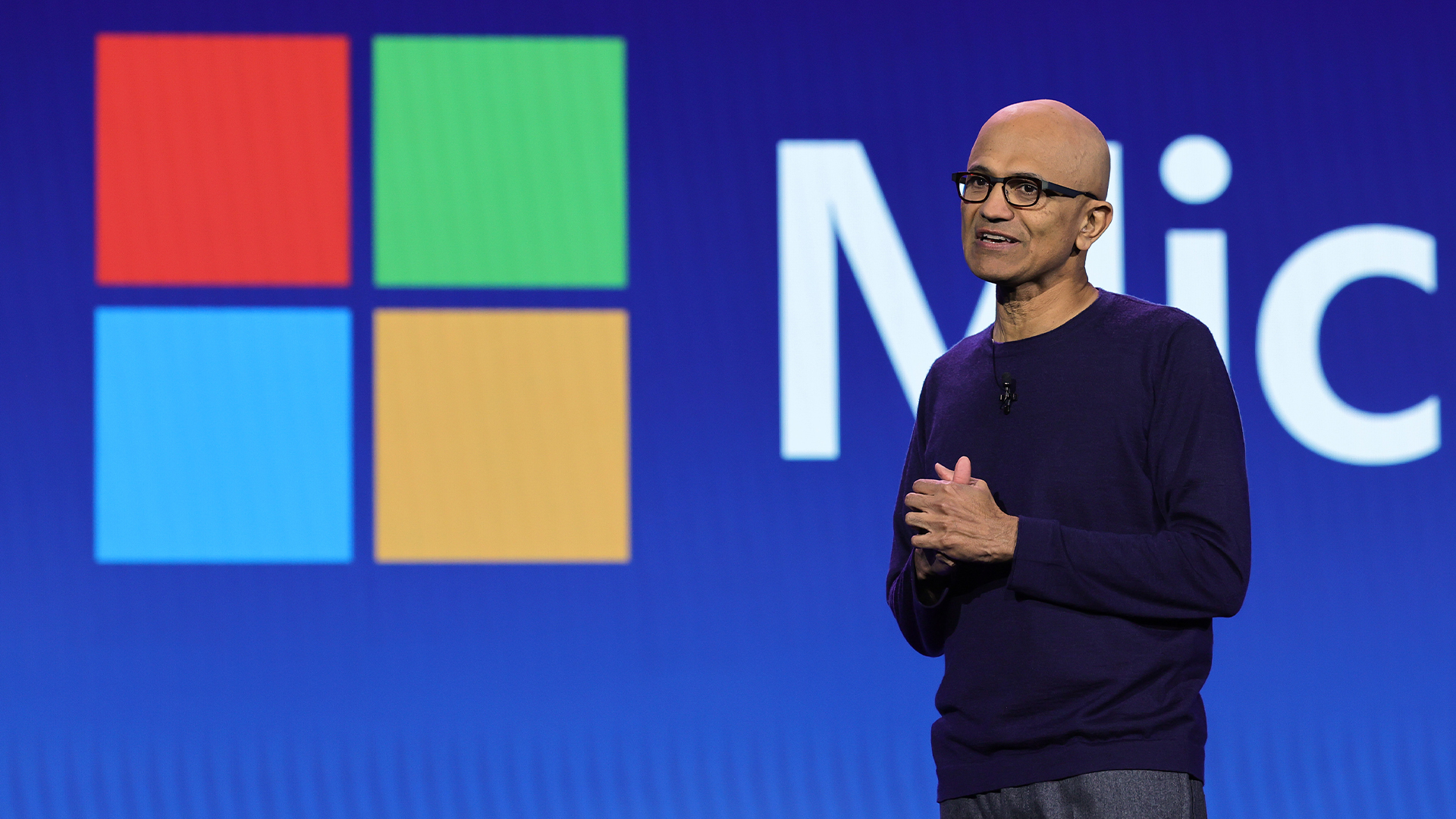 Satya Nadella says “our multi-model approach goes beyond choice’ as Microsoft adds Claude AI models to 365 Copilot
Satya Nadella says “our multi-model approach goes beyond choice’ as Microsoft adds Claude AI models to 365 CopilotNews Users can choose between both OpenAI and Anthropic models in Microsoft 365 Copilot
-
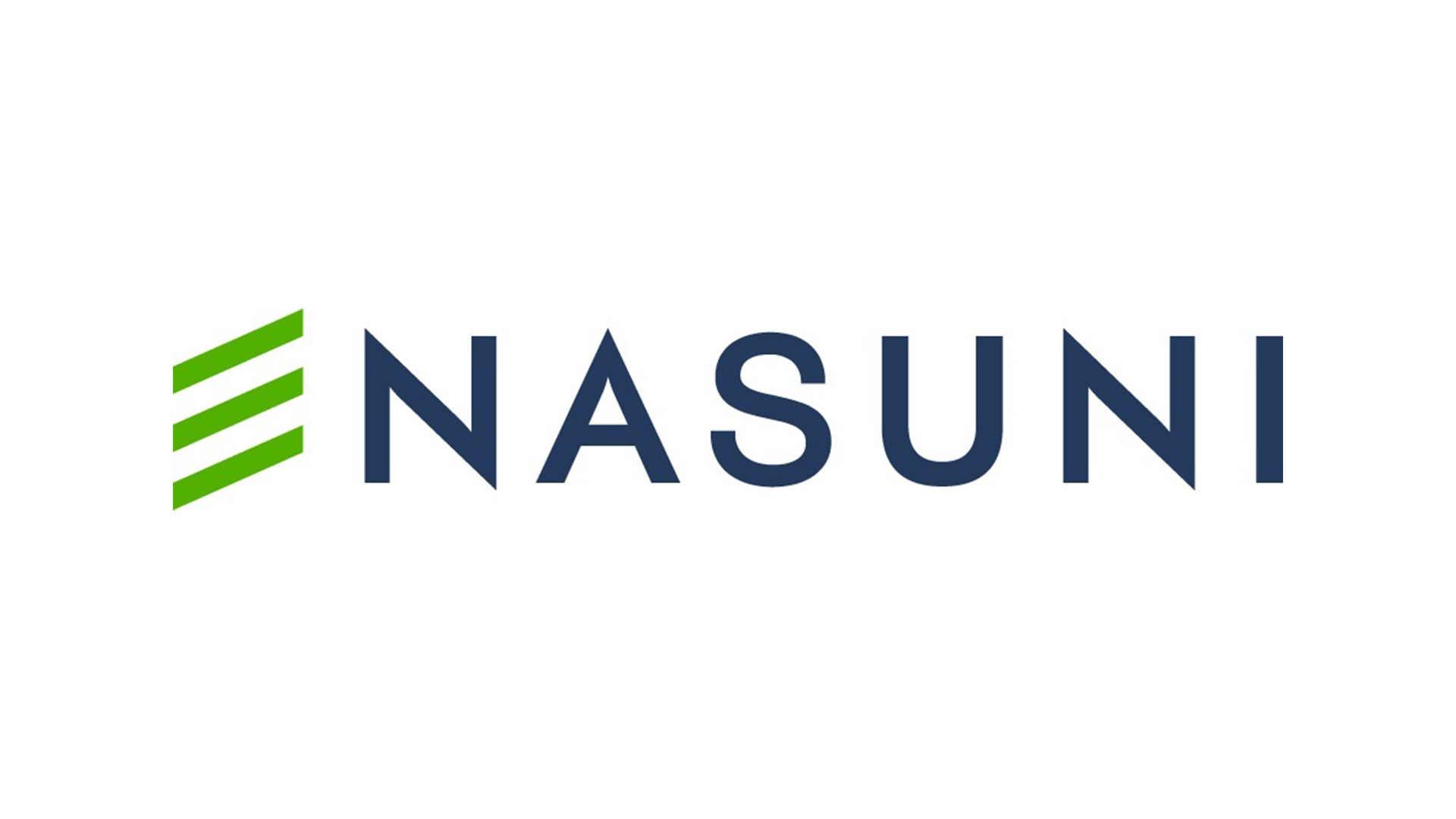 Nasuni announces new Microsoft 365 Copilot integration
Nasuni announces new Microsoft 365 Copilot integrationNews Nasuni’s File Data Platform now includes integration with the Microsoft Graph Connector to enhance data access for Microsoft’s AI services
-
 Microsoft Copilot review: AI baked into your apps
Microsoft Copilot review: AI baked into your appsReviews Microsoft already provides generative AI online – now it's putting it inside its operating systems and apps but the results are mixed
-
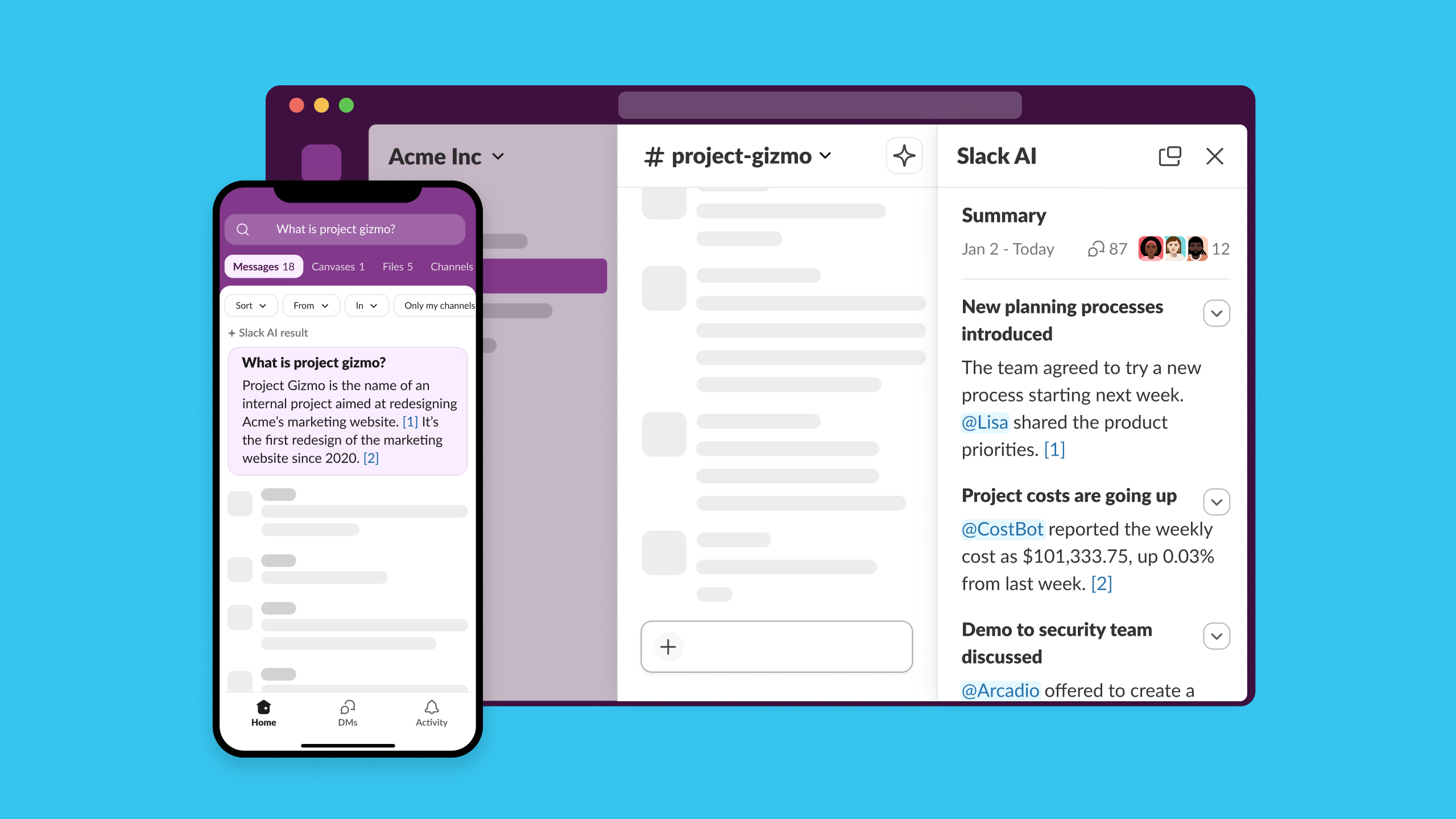 Slack AI: Everything you need to know about the platform's new features
Slack AI: Everything you need to know about the platform's new featuresNews New Slack AI features look to supercharge user productivity and collaboration as the firm targets intense competition with industry competitors
-
 Everything you need to know about Microsoft Copilot Studio
Everything you need to know about Microsoft Copilot StudioNews The new Microsoft Copilot Studio will allow customers to create their own AI assistants
-
 Duet AI vs Copilot: All the similarities and differences
Duet AI vs Copilot: All the similarities and differencesAnalysis Google has embedded generative AI across the entirety of its Workspace apps, but how does it compare to Copilot and what are its advantages?
-
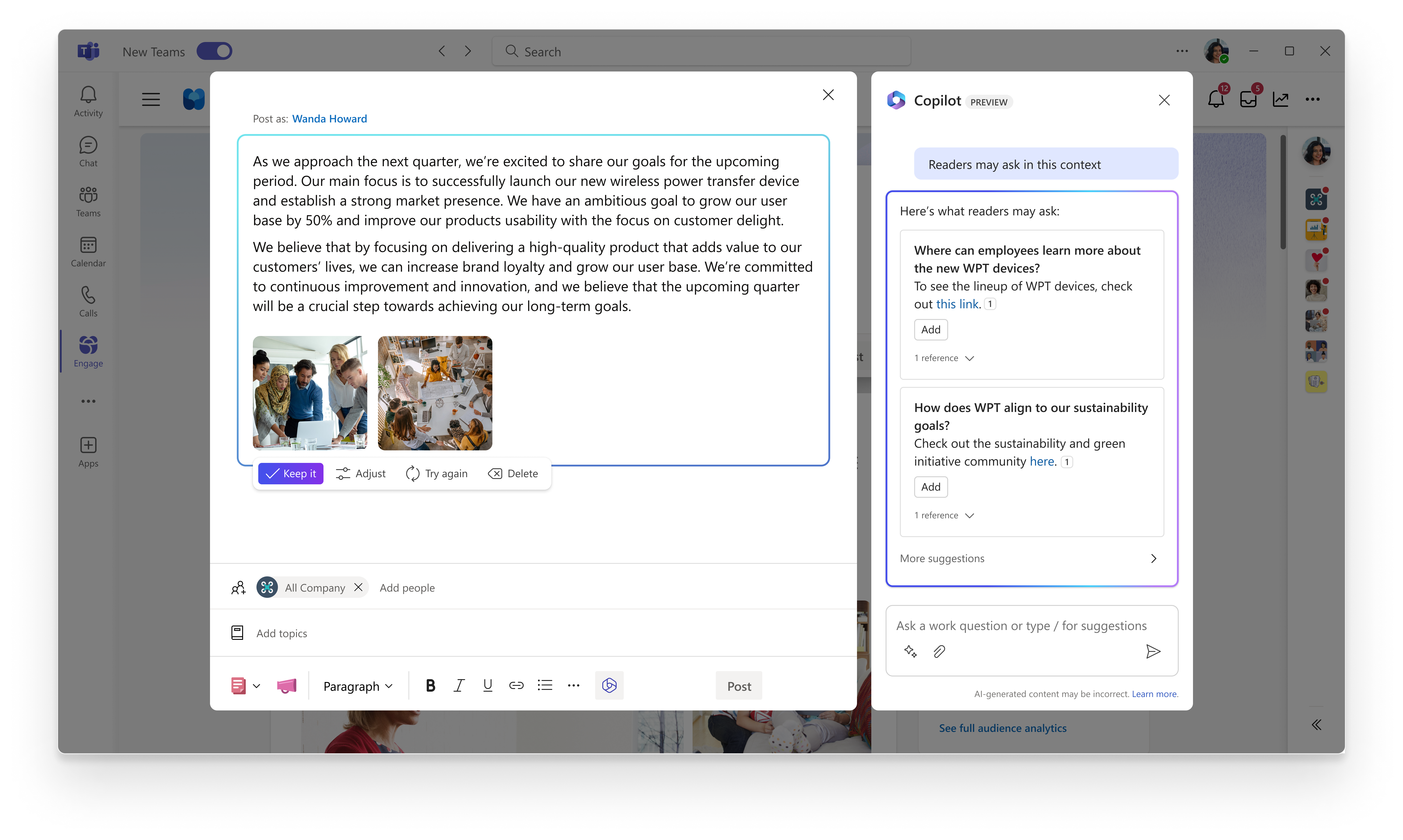 Microsoft Copilot for Viva brings AI to employee experience
Microsoft Copilot for Viva brings AI to employee experienceLeaders can make use of new analytical and generative AI tools to improve workforce engagement

